Legal Updates
Legal Updates Effecting Estate Planning, Trust & Probate Law
Legal Updates
Corporate Transparency Act
The Beneficial Ownership Information Reporting Rule (“BOIR RULE”) under the Corporate Transparency Act (“CTA”) became effective January 1, 2024, implemented primarily through a rule published by the Financial Crimes Enforcement Network (“FinCEN”) on September 30, 2022. This rule triggered beneficial ownership reporting requirements for millions of businesses and entities (unless exempt), including C corps, S corps, professional corps, LLCs, FLPS, to name only a few. If the business was established before January 1, 2024, the initial report is due by January 1, 2025. If the business was established after January 1, 2024, but before January 1, 2025, the initial report is due 90 calendar days after it was established. If the business is established after January 1, 2025, the initial report is due 30 calendar days after it is established. There are hefty penalties for noncompliance.
Federal Estate Tax Exemption and Gift Tax
Effective January 1, 2025, an individual’s federal gift, estate, and generation-skipping transfer tax exemption amounts will increase to $13.99 million per person. The tax rate for amounts above the exemption is 40%. Estate tax exemption “portability” continues to be an option for the surviving spouse, where the surviving spouse can transfer any unused portion of the predeceased spouse’s estate tax exclusion, thus allowing married couples to shield up to $27.98 million from estate tax without the use of the traditional A-B Trust. However, the surviving spouse must file a timely 706 death tax return and elect portability to preserve it.
Effective January 1, 2025, the gift tax annual exclusion will increase to $19,000 per donee.
Increased Maximum Values for Transferring Small Estates Without Probate
- Personal property in an estate can be collected by a small estate affidavit (§13100) without formal probate if the estate does not exceed $208,850 for deaths on/after April 1, 2025. Personal property in an estate can be collected by a small estate affidavit if the estate does not exceed $166,250 for deaths before April 1, 2022. For deaths on/after April 1, 2022, and before April 1,2025, that threshold amount is $184,500.
- For deaths occurring on or after April 1, 2025, the amount of real property in an estate that can pass without a formal probate pursuant to a Petition to Determine Succession to Real Property (and subsequent court order) if it was the decedent’s primary residence is $750,000. All other real property that exceeds $61,500 will be subject to probate.
- The maximum value of real property that can be transferred by Affidavit re Property of Small Value is $61,500 for deaths on/after April 1, 2022.
- The amount of salary that a surviving spouse can collect by affidavit immediately after death increased to $18,450.
Double Damages for Elder or Dependent Adult Financial Abuse
Probate Code Section 859 was amended to allow double damages in actions against persons exercising undue influence or gaining property through elder or dependent adult financial abuse.
FDIC Insurance Limits
The FDIC insurance limits will remain at $250,000; however, revocable trusts may qualify for up to $500,000 coverage (or $100,000,000 if two settlors) based on the number of trust beneficiaries.
No-Contest Clause
New no-contest clause legislation greatly restricts the enforcement of such clauses. Under current law, such clauses only will be enforced against a “direct contest” brought without “probable cause” and under other very limited circumstances. Furthermore, contestants of a trust or a will can no longer file a “safe harbor” petition to determine if a particular action constitutes a “contest.”
Under current California case law, a no contest clause contained in a trust document does not apply to trust amendments. Those amendments should contain their own no contest clause. This same reasoning will apply to a codicil or to a will. You should check your estate planning documents to determine whether any of them need to be revised.
Medi-Cal Eligibility
On January 1, 2024, the California eliminated the Medi-Cal asset limit for eligibility purposes.



